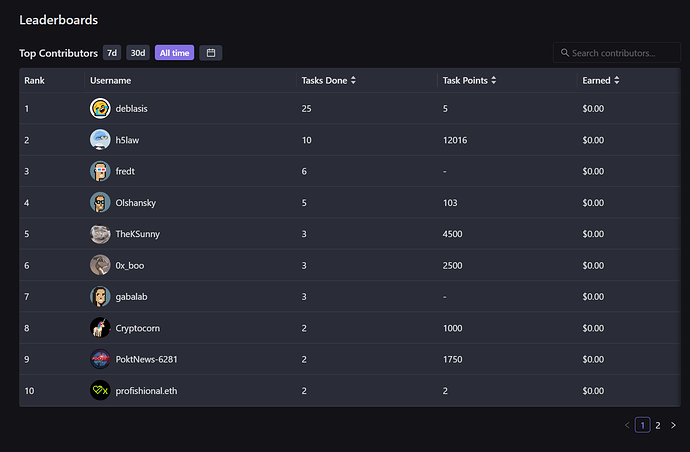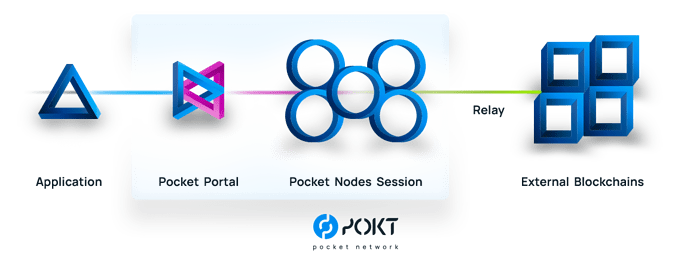Hi there, I was diverted here from @b3n since the conversation was derailing way too much from the topic in POKTscan Geo-Mesh Reimbursement - #21 by shane
@shane:
I think I didn’t make myself clear, I apologize.
I am still quite ignorant  , still learning the ropes of DAO, PNI, PNF and their interactions and also the terminologies (reimbursement, EVA, etc).
, still learning the ropes of DAO, PNI, PNF and their interactions and also the terminologies (reimbursement, EVA, etc).
I haven’t read this whole thread either, but I will catch up.
Also, I have a bit of tunnel vision with V1 and I don’t know much of what’s happening in V0 and overall in the node-running community.
Where I believe it is important to distinguish between contributors is “are they being compensated with an hourly wage during this work?”. For the v1 team, they are given an hourly wage for working on POKT, so there is no reason for individual contributors to submit reimbursement proposals. Even if you did crack geo-mesh, you should not be submitting a proposal for reimbursement because you were already paid. PNI already submitted PEP-49 to help fund your wages.
I am not and would never ask for a reimbursement as you define it for something I am already being paid for. 
I was talking about something innovative and/or that solves real problems developed outside of my regular responsibilities and duties, in my spare time, beyond what I am already being paid for.
I won’t do that anytime soon, I was talking hypothetically just to challenge some of the ideas.
I have used GeoMesh purely as an example since it’s v0 related and clearly doesn’t fall under the umbrella of “v1 protocol development”.
I realize I have used the word “prize” erroneously in my previous message in the GeoMesh thread.
I agree that with proposals being essentually “black boxes” it is hard to distinguish what is what. The only way to proceed in a fair manner is to have transparency.
I totally agree that transparency is necessary otherwise trust is lost and we are back in the Web2 realm.
Transparency has several shapes and forms. What if it’s the process of selecting fairly that becomes transparent?
- Is asking for a detailed cost breakdown the best way?
- Who is gonna ultimately deliberate if a proposal ask is valid?
- Can these folks be trusted? What process would check the fairness of their judgement?
- Should the lean and hyper-efficient business that can deliver more value at a lower cost be penalized or rewarded?
There’s a lot I could say here but I also have some code to write  so I’ll try to summarize:
so I’ll try to summarize:
I think it’s important to distinguish between different ways of contribution (I suck at naming things, bear with me):
- Pull: work whose scope and/or need is known before even a single line of code is written and has to be researched, built, delivered by the community
- Push: A community member/entity comes up with something that wants to share with the broader community
Why this distinction?
Let me use a couple of metaphors:
Pull model
If I need some work to be performed around my house I ask for a quote from multiple parties, too high? Next. Nobody else? Ok, I’ll take it, I really need a roof! If I can’t really find anyone with my budget I raise it until I find a bid. (efficient markets)
Push model
I am chilling in the garden minding my own business and someone comes to me saying: “you could really benefit from some solar lights in your garden, it would really increase the value of your property, etc, etc. I have some for 4000 POKT in my trunk, I am gonna give them to you at cost, trust me. Should I bring and install them?”
What if… in the push model you would have something something like:
- contributor: I have really enjoyed that barbecue you offered the other day, please take these lamps on me, enjoy! I don’t expect anything back because I am already benefitting from you but I’ll take whatever you have to offer of course (Open source model)
- me: oh, thanks! Well, let’s have a beer together -or- I have been looking for these in years! Please take this bag, you deserve it and I’ll make it back quickly thanks to your contribution.
I personally think that reimbursements alone are probably not the optimal way to handle things.
A group of individuals cannot possibly evaluate with fairness something that a team has built even if bills, timesheets and even team lunch recipes are presented. Costs are different for different companies. It’s never an apple vs apple comparison.
Only the market has the capacity to determine the “fair” price for something IMHO.
Competitiveness is key.
Example: I live in the UK but I don’t compete in the UK job market. The Web3 world I want to live in doesn’t care about the cost of your real estate. It only cares about the value that you bring to the table.
Using again GeoMesh -just as an example-, since Web3 is all about incentives, I think I would have created a public bounty to
“develop a solution that levels the playing field in the node running community since there are node runners that are seeing 2x-3x the rewards leaving the others dry” (or better technical description).
Along with an estimated budget that I think should be small initially and grow until there’s interest from community builders.
Like an auction. Similar to what happens in the public administration world with their suppliers for goods/services.
Contributors submit their carefully estimated asking amounts to deliver within a deadline before they commit and do any work.
At the deadline or when the first contributor submits a solution, there’s a verification process (performed by a trusted committee, you guys might have already talked about something similar above, I think my eyes caught something while scrolling the thread, GRIP?).
If all is good (we’d need an objective way to determine if the solution is acceptable, sometimes it’s easy, sometimes it’s really hard and time-consuming, TBD) you reward the contributor.
If something is wrong, the competitive auction is back on until the contributor addresses the functional issues (the other contributors might have given up completely or not).
Again, the first to submit for verification is the runner-up to win the bounty but they cannot submit twice in a row if there are other runner-ups. This should increase the quality of the updates to the initial submission and also reward both speed and quality.
The whole thing should be conducted in the open apart from showing implementation details of the various solutions to competing contributors (you’d need again trusted folks to manage the process of course. Immediate termination for collusion/corruption, and harsh measures to be put in place to deter any shenanigans).
If the process stalls because all the contributors gave up, you auction again and repeat the above.
Quitters should be motivated to stand up and try again leveraging the partial work already done thanks to the bigger incentive.
This way you have a Darwinian selection of the best solution at the best price IMHO.
Easier said than done, that’s for sure.
As I said in the other thread, fairness is subjective. Only nature and its approximations like “fair markets” can be fair and if you are on the losing side you can only  and try again or quit altogether. That’s life isn’t it?
and try again or quit altogether. That’s life isn’t it?
Is it fair that the lion eats the gazelle? Ask both of them… or the zebra that’s observing the whole thing from afar.
Working on something and ending up not winning or ending up spending more than the amount initially auctioned for should be considered a business risk to learn/evolve from. (you are the gazelle)
Having a lean organisation, because of geography, headcount and/or skills should be considered a competitive edge that allows you to win more bounties, scale, repeat. (you are the lion)
Of course, since it’s all open source at the end of the day when the winner’s solution is merged/made public, other contributors can learn from the winners and try to reverse engineer their success formula… next time they might have a better chance. (you are a hyena that dreams of becoming a lion)
Again, the natural selection process aims at improving things at every iteration, including the internal processes that would make all the above possible.
![]() It’s very relevant to here as well.
It’s very relevant to here as well.

